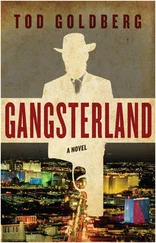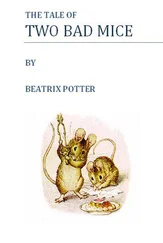Tod Goldberg - The Bad Beat
Здесь есть возможность читать онлайн «Tod Goldberg - The Bad Beat» весь текст электронной книги совершенно бесплатно (целиком полную версию без сокращений). В некоторых случаях можно слушать аудио, скачать через торрент в формате fb2 и присутствует краткое содержание. Жанр: Триллер, на английском языке. Описание произведения, (предисловие) а так же отзывы посетителей доступны на портале библиотеки ЛибКат.
- Название:The Bad Beat
- Автор:
- Жанр:
- Год:неизвестен
- ISBN:нет данных
- Рейтинг книги:4 / 5. Голосов: 1
-
Избранное:Добавить в избранное
- Отзывы:
-
Ваша оценка:
- 80
- 1
- 2
- 3
- 4
- 5
The Bad Beat: краткое содержание, описание и аннотация
Предлагаем к чтению аннотацию, описание, краткое содержание или предисловие (зависит от того, что написал сам автор книги «The Bad Beat»). Если вы не нашли необходимую информацию о книге — напишите в комментариях, мы постараемся отыскать её.
The Bad Beat — читать онлайн бесплатно полную книгу (весь текст) целиком
Ниже представлен текст книги, разбитый по страницам. Система сохранения места последней прочитанной страницы, позволяет с удобством читать онлайн бесплатно книгу «The Bad Beat», без необходимости каждый раз заново искать на чём Вы остановились. Поставьте закладку, и сможете в любой момент перейти на страницу, на которой закончили чтение.
Интервал:
Закладка:
And anyway, Fiona didn’t actually see any nefarious-looking men mingling about the tea shop, only women with babies in strollers, and then one waitress who looked like she was one bad Sylvia Plath poem away from ending it all. Fiona never understood women who wore horn-rimmed glasses and clogs. It was as if they just decided to extinguish sex from their lives forever. Fiona thought that at worst, she’d end up with a nice cup of tea and at best, maybe the girl in the glasses could provide her with at least a tiny bit of information.
Once she was inside, Fiona saw that the tearoom occupied a bungalow that hadn’t been renovated as much as the other shops had-the kitchen was still being used as the kitchen, but walls had been moved, clearly, and what must have been the living room now housed a small shop and a few tables. Charming, really. Most of the sitting area was out front on a sun-dappled patio that wrapped around to the bungalow’s original side yard. The shop and the indoor part of the sitting area smelled like cinnamon and jasmine and, low in the background, music played. It was a female singer doing a number about being sad and lonely (or at least that’s what Fiona surmised-she couldn’t actually hear all of the lyrics, apart from the constant refrain of “I’m sad and lonely”). None of it felt very Russian at all. Rather, it was more like a Starbucks that had been denuded of all corporate pretension and coffee.
Fiona spent a few minutes looking at the various knickknacks-mostly different devices for storing or making tea, a field of retail that she assumed was small but apparently infinite. There were also small pieces of art-pictures on tiny easels, tea bags photographed in black and white and then matted, paintings of teacups in open fields, that sort of thing-that Fiona assumed were purchased only by people who had run out of space for cats in their home.
“Can I help you?”
Fiona turned around to find the smiling face of the Sylvia Plath girl. Surprisingly, she detected just a hint of a Russian accent. Interesting. And helpful.
“Yes. Yes, you can,” Fiona said. She decided to try on one of those plain American accents she always heard inside Target when she went to buy dish soap. An accent that conveyed just enough education to be presumptuous and just enough lack of worldliness to still hold Russians in real suspicion. Or, in other words, your average government worker. “Is Mr. Drubich here?”
“No,” Sylvia Plath said, her accent thicker now, her demeanor immediately defensive. Maybe she wasn’t a Sylvia Plath kind. Maybe she was more of a Natasha Fatale in a bad dress. But Natasha would never wear those glasses. Russian women always did have a certain brio about them.
“When do you expect him back?” Fiona asked.
“He doesn’t work here,” Sylvia Plath said.
“But you’re aware he owns this establishment, correct?”
“Who am I speaking to?” Sylvia Plath asked. Her accent was so pronounced now that Fiona was actually surprised by it. This woman wasn’t exactly keeping deep cover. Or else she was just your average waitress who didn’t want to scare off the ladies who drink tea by sounding like the enemies they remember from childhood.
Fiona reached into her purse and took out a pen and a small pad that she usually used to write down ideas for different explosives that came to mind when she was out shopping or driving in traffic. She flipped to the middle of the notebook. “What’s your name?” Fiona asked.
“Am I under arrest for something?”
“I don’t know,” Fiona said. “Have you done something wrong?”
“I asked you who you were first,” Sylvia Plath said.
“This isn’t two kids in a sandbox, young lady,” Fiona said, and then she realized that the voice she was channeling was actually Sam’s and that got her very frightened. How had it happened that a man she used to hate was now her go-to dumb American voice? Well, thank God for small linguistic favors. “Those rules of decorum don’t apply, unless you steal my shovel.”
Sylvia Plath glared at Fiona. Odd, Fiona thought. Why isn’t this woman frightened? Her defiance told Fiona that either Sylvia Plath had been prepared for this moment or she wasn’t taking Fiona seriously. Maybe it was the pumps Fiona had chosen to wear. They didn’t exactly scream government worker, but even going undercover required a strict adherence to fashion trends. Plus, Fiona knew she could whip off her shoe and stab someone with its heel in one swift move. She’d done it once before to… who was it? She’d beaten up so many people in the last few years, it all tended to blur.
A group of women walked into the shop then and Sylvia Plath greeted them warmly, her glare dissipating immediately. Must be regulars. And truth be known, Fiona rather liked the tea selection here and, under different circumstances, could see herself popping in every now and then. Getting a decent cup of tea anywhere in Miami was impossible. She could live without the constant strain of female singer-songwriters complaining over twangy guitars about how their man did them wrong, but, well, if she were one of these ladies with babies having afternoon tea, perhaps she’d feel differently.
“If you could wait just one moment,” Sylvia Plath said. Or, really, she rather hissed her words. “I’ll be right back.”
“Take your time,” Fiona said. Fiona circled the shop and began really looking at the items for sale, picking them up and examining them, and each time she came away with another tidbit of information. A set of bone-white teacups from India. An electric teakettle from Dubai. An assortment of herbal teas from Pakistan. Nothing, it seemed, was from America. It helps to have plenty of shipments from countries like Pakistan to ease fears that you’re bringing in, say, guns or drugs. Bring in ten boats every year filled with herbal teas and people might just begin to think you’re nonthreatening and not examine your load too closely.
Sylvia Plath returned to the shop holding a teakettle in one hand and a tray of plates in the other. Fiona thought that it must have been quite a cumbersome task carrying all of that while also fostering the burden of guilt for… well, whatever. She’d probably done something, right?
“Pardon me,” Sylvia said, “I just need to set this down and then we can talk.”
“No problem,” Fiona said.
And then Sylvia Plath smacked Fiona upside the back of her head with the teakettle; Fiona’s only thought before she slipped into blackness was that she was pretty sure the girl didn’t actually read poetry.
When Fiona came to-it couldn’t have been more than just a few minutes, since the same singer-songwriter woman was still going on about rainbows and her man over the speaker system-she was sitting on a folding chair somewhere in the back of the house. It looked to Fiona like a break room perhaps-a small table, three chairs, the wall decorated with papers detailing side work and the employee schedule for the next week.
Fiona wasn’t tied up and there was a glass of water and a Ziploc bag filled with ice on the table in front of her. Fi took the bag and placed it against the back of her head, which throbbed with her pulse. She reached back, touched her scalp, felt the raspberry that was bulging through her hair and also a good-sized cut that slowly leaked blood, and determined that someone today was going to get some payback. It was just that simple.
Her neck was also sore and her right ankle looked a bit swollen. You get hit in the back of the head with a teakettle, it’s expected you’ll be feeling a touch out of it. Mostly, Fiona was angry that she’d been knocked out by a woman wearing a peasant dress and horn-rimmed glasses. Element of surprise, that’s all.
She stood up and tried the door but found it, un-surprisingly, locked. She could pick it in an instant, but then she’d likely walk into the path of men with guns… Speaking of guns… Fi’s purse was nowhere to be found, which wasn’t good.
Читать дальшеИнтервал:
Закладка:
Похожие книги на «The Bad Beat»
Представляем Вашему вниманию похожие книги на «The Bad Beat» списком для выбора. Мы отобрали схожую по названию и смыслу литературу в надежде предоставить читателям больше вариантов отыскать новые, интересные, ещё непрочитанные произведения.
Обсуждение, отзывы о книге «The Bad Beat» и просто собственные мнения читателей. Оставьте ваши комментарии, напишите, что Вы думаете о произведении, его смысле или главных героях. Укажите что конкретно понравилось, а что нет, и почему Вы так считаете.












